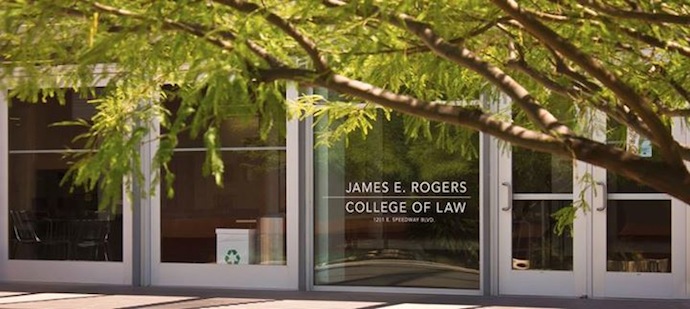Given the fierce competition for prospective students and rankings in the modern era of legal education, it is surprising and exciting to discover two substantially different law schools putting aside their competitive instincts in an effort to serve their communities.
The University of Arizona James E. Rogers College of Law has joined forces with Brigham Young Law School to explore solutions to reduce evictions in Arizona, Utah and beyond. This new project kick-started Arizona’s new Innovation for Justice (I4J) Program this fall and builds upon the initial success of BYU’s LawX Legal Design Lab, which launched in the fall of 2017.
The Arizona class is taught by Stacy Butler, director of the the law school’s Innovation for Justice program. Kimball D. Parker, LawX director and president of Parsons Behle Lab, a legal tech innovation subsidiary of a Salt Lake City law firm, leads the LawX initiative. Both classes focus on improving access to justice with the use of design thinking, systems thinking, technology and interdisciplinary collaboration.
“Students get to take a deep dive into a specific project to produce a community deliverable. They engage with the community and in doing so, begin to understand how their learning can be applied outside of the classroom,” said Marc Miller, dean of the UA James E. Rogers College of Law.
“Given the sheer volume of evictions in America, we believe this is the right issue for LawX to tackle in its second year, and we welcome collaboration with the University of Arizona Law School,” said D. Gordon Smith, Dean of BYU Law School.
To tackle the overwhelming eviction problem, twelve Innovation for Justice students and six LawX students utilize a design thinking approach throughout the fall semester to understand why tenants disengage with the civil legal system, identify innovative approaches to educating and engaging tenants, and develop strategies for delivering possible solutions into the hands of those who need help most.
The students check in with students at their sister school via video conference and utilize collaboration tools such as Google Docs and Slack to share research insights. Depending on the findings, the collaboration could result in a combined project that can be applied beyond Arizona’s and Utah’s borders, or it could result in separate projects that address regional barriers to eviction reduction.
“An eviction can be life-changing to an individual or family, and it can result in homelessness; our research determined that evictions have one of the highest rates of default among those who can’t afford an attorney,” said Parker.

